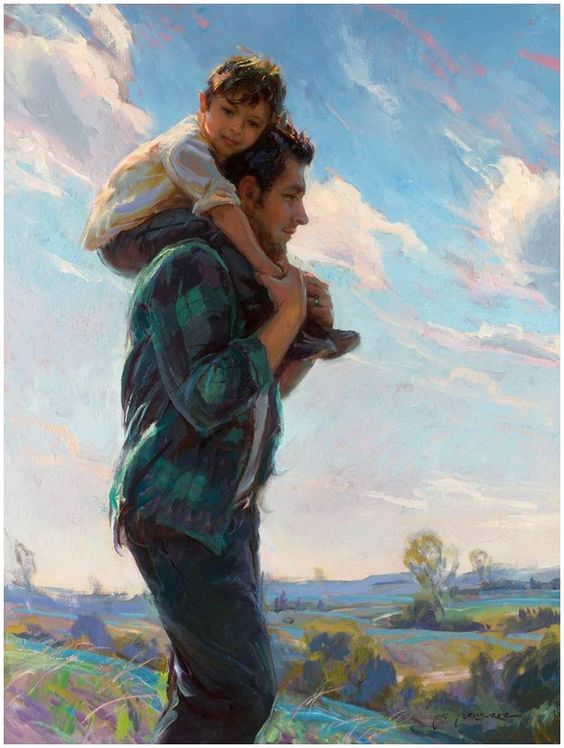Jesus, in His seemingly illogical and counterintuitive teachings on children, reveals the heart of the King and His Kingdom. MacDonald illustrates this in his sermon The Child in the Mist placing divine childlikeness in high contrast to what he calls “…adult, so-called worldly wisdom.” This adult perspective robs us of our childhood. Childhood, which is childlikeness, is the very nature of the Divine!

Mark 33-37 NLT
After they arrived at Capernaum and settled in a house, Jesus asked his disciples, “What were you discussing out on the road?” But they didn’t answer, because they had been arguing about which of them was the greatest. He sat down, called the twelve disciples over to him, and said, “Whoever wants to be first must take last place and be the servant of everyone else.”
Then he put a little child among them. Taking the child in his arms, he said to them, “Anyone who welcomes a little child like this on my behalf welcomes me, and anyone who welcomes me welcomes not only me but also my Father who sent me.”
Matthew 18:1-5 NLT
About that time the disciples came to Jesus and asked, “Who is greatest in the Kingdom of Heaven?”
Jesus called a little child to him and put the child among them. Then he said, “I tell you the truth, unless you turn from your sins and become like little children, you will never get into the Kingdom of Heaven. So anyone who becomes as humble as this little child is the greatest in the Kingdom of Heaven.
“And anyone who welcomes a little child like this on my behalf is welcoming me.”
Divine Childlikeness
In understanding Jesus’ teaching on the child, we must recognize that He understood the essential quality of childlikeness as relational. This quality is recognized as vulnerability. Even though He is sovereign over the Cosmos He became the servant of all! The Creator and Sustainer humbled Himself and became an infant, a child, the most vulnerable of the human race. Jesus chose, through the self-limiting of His power the path of love to give His life for His creation. He willingly made Himself vulnerable to great sorrow, pain and death, for our God holds nothing back in Their self-giving love!
Therefore, the governing relational principle is: the degree to which we are willing to be vulnerable is equal to the degree to which we are open to love. The barriers we raise, as adults, to protect us from vulnerability block our way to participation in love and relationship! You cannot have one without the other! “In this is love, not that we loved God, but that He loved us and sent His Son to be the propitiation for our sins.” (1 John 4:10 NASB) This is who They are, how They live, and how it all works!
The Process
A young child is naturally vulnerable and dependent on others for their love and support. MacDonald says that even the most selfish child could represent childlikeness because it has nothing to do with the child’s character but with its nature of dependence. Children are neither humble nor servants, as Jesus tells His disciples they must become. They live in a world of wonder, beauty, freedom and imagination, carefree in the life of the family. Children trust until they are taught otherwise.
Then there is the next step in the process of maturity becoming independent. In part this is quite natural, but most often it is driven by the fear brought on by betrayal and distrust. This independence begins our more selfish adult season of competition, attainment, and achievement, by the awakening and awareness of ourselves as distinct from others. “If I don’t do it, it will not get done.” Then finally, in our spiritual journey, to those who submit to it, spiritual maturity. This is a willing return through self-limiting to a chosen position of interdependency.
As an independent adult, humility and service puts them in a place of voluntary dependence. Adult dependency depends on a relational trust, known only in Divine childlikeness. It is here, that we, together with the Father, Son and Spirit, find our common childlikeness. We discover this other-centeredness that forged creation in the beginning and experience the oneness and union of Divine Life. This is where the possibility of true love, fellowship, and communion is lived, and in this place of vulnerability, Real Life happens!
